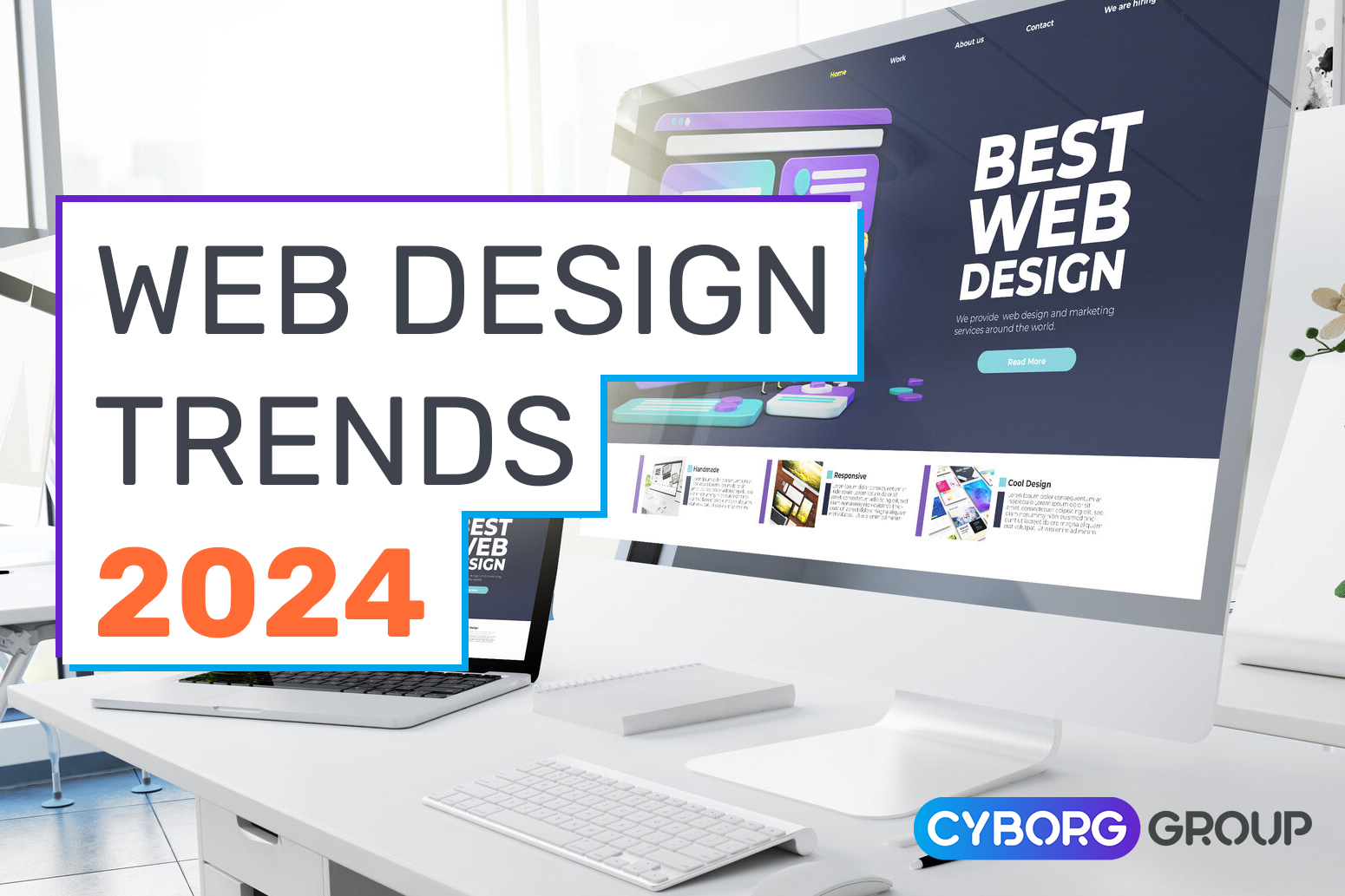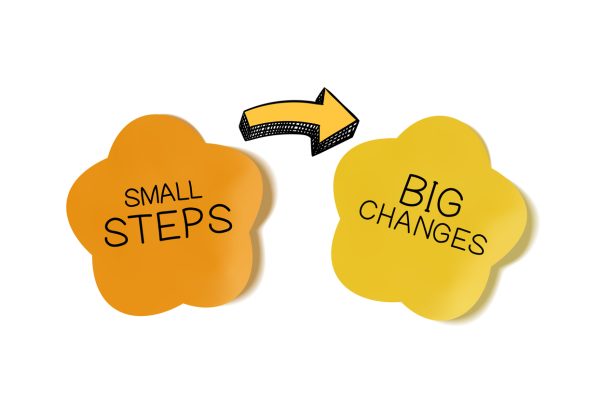Table of Contents
-
- Introduction
- The Impact of AI on Web Design and SEO Strategies
- How AI is Revolutionizing User Experience in Web Design
- Enhancing SEO with AI: Strategies for Optimal Search Engine Rankings
- The Role of AI in Personalizing Web Design and SEO Strategies
- Future Trends: AI-Powered Web Design and SEO Techniques
- Conclusion
Embrace the future: Revolutionize web design and SEO with AI.
Introduction
The Future is Now: Incorporating AI into Web Design and SEO Strategies
Artificial Intelligence (AI) has rapidly transformed various industries, and web design and search engine optimization (SEO) are no exceptions. As technology continues to advance, businesses are increasingly incorporating AI into their web design and SEO strategies to enhance user experience, improve search engine rankings, and drive more traffic to their websites. This article explores the growing importance of AI in web design and SEO, highlighting its potential benefits and providing insights into how businesses can leverage AI to stay ahead in the digital landscape.
The Impact of AI on Web Design and SEO Strategies
Artificial intelligence (AI) has become an integral part of our lives, from voice assistants like Siri and Alexa to personalized recommendations on streaming platforms. But did you know that AI is also revolutionizing the world of web design and search engine optimization (SEO)? In this article, we will explore the impact of AI on web design and SEO strategies, and how businesses can leverage this technology to stay ahead in the digital landscape.
When it comes to web design, AI has the potential to transform the way websites are created and maintained. Traditionally, web designers would spend hours coding and designing each element of a website. However, with AI-powered tools, designers can now automate repetitive tasks and focus on more creative aspects of the design process.
One of the key areas where AI is making a significant impact is in generating personalized user experiences. AI algorithms can analyze user behavior, preferences, and demographics to create tailored website experiences. For example, AI can dynamically adjust the layout, content, and even color schemes of a website based on individual user preferences. This level of personalization not only enhances user engagement but also improves conversion rates.
Moreover, AI can also help optimize website performance. By analyzing vast amounts of data, AI algorithms can identify patterns and trends that humans may overlook. This allows designers to make data-driven decisions when it comes to optimizing website speed, navigation, and overall user experience. AI can also detect and fix any technical issues that may hinder a website’s performance, ensuring a seamless browsing experience for users.
Moving on to SEO strategies, AI is transforming the way businesses approach search engine optimization. In the past, SEO was primarily focused on keyword research and backlink building. However, with AI, SEO strategies are becoming more sophisticated and effective.
AI-powered tools can analyze search engine algorithms and user behavior to identify the most relevant keywords and phrases for a particular website. This helps businesses optimize their content and meta tags to rank higher in search engine results. AI can also analyze competitors’ websites and identify gaps in their SEO strategies, allowing businesses to gain a competitive edge.
Furthermore, AI can help businesses stay up-to-date with the ever-changing SEO landscape. Search engine algorithms are constantly evolving, and what worked yesterday may not work today. AI algorithms can monitor these changes and provide real-time insights and recommendations to ensure that businesses stay ahead of the curve. This includes identifying emerging trends, optimizing content for voice search, and adapting to new ranking factors.
In conclusion, AI is revolutionizing web design and SEO strategies. From personalized user experiences to data-driven optimizations, AI-powered tools are enabling businesses to create more engaging websites and improve their search engine rankings. As AI continues to advance, it is crucial for businesses to embrace this technology and incorporate it into their digital strategies. By doing so, they can stay ahead in the ever-evolving digital landscape and provide exceptional user experiences. The future is now, and AI is here to stay.
How AI is Revolutionizing User Experience in Web Design
The Future is Now: Incorporating AI into Web Design and SEO Strategies
Artificial Intelligence (AI) has become an integral part of our lives, from voice assistants like Siri and Alexa to personalized recommendations on streaming platforms. But did you know that AI is also revolutionizing the world of web design? In this article, we will explore how AI is transforming user experience in web design and why it is essential for businesses to incorporate AI into their web design and SEO strategies.
One of the most significant ways AI is revolutionizing user experience in web design is through the use of chatbots. Chatbots are AI-powered virtual assistants that can interact with users in real-time, providing them with instant support and information. These chatbots can be programmed to answer frequently asked questions, guide users through the website, and even make product recommendations based on the user’s preferences. By incorporating chatbots into web design, businesses can enhance user experience by providing immediate assistance and personalized recommendations, ultimately increasing customer satisfaction and engagement.
Another way AI is transforming user experience in web design is through the use of predictive analytics. Predictive analytics uses AI algorithms to analyze user data and predict user behavior and preferences. By analyzing user data such as browsing history, purchase patterns, and demographic information, businesses can gain valuable insights into their target audience. This information can then be used to personalize the user experience by displaying relevant content, products, and offers to each individual user. By tailoring the website experience to each user’s preferences, businesses can increase user engagement, conversion rates, and ultimately, revenue.
AI is also revolutionizing user experience in web design through the use of dynamic content. Dynamic content refers to website elements that change based on user behavior and preferences. For example, a website can display different content to a first-time visitor compared to a returning customer. By using AI algorithms to analyze user data in real-time, businesses can dynamically adjust the website’s content, layout, and design to provide a personalized and engaging experience for each user. This not only enhances user experience but also increases the chances of conversion and customer loyalty.
Incorporating AI into web design and SEO strategies is not only beneficial for user experience but also for search engine optimization. AI-powered SEO tools can analyze website data, identify areas for improvement, and provide recommendations to optimize the website’s performance in search engine rankings. By using AI algorithms to analyze keywords, backlinks, and user behavior, businesses can gain valuable insights into their SEO strategies and make data-driven decisions to improve their website’s visibility and organic traffic.
In conclusion, AI is revolutionizing user experience in web design by providing instant support through chatbots, personalizing the website experience through predictive analytics, and dynamically adjusting content based on user behavior. By incorporating AI into web design and SEO strategies, businesses can enhance user engagement, increase conversion rates, and improve their website’s visibility in search engine rankings. The future is now, and it is essential for businesses to embrace AI to stay ahead in the ever-evolving world of web design and SEO. So, what are you waiting for? It’s time to harness the power of AI and take your web design and SEO strategies to the next level.
Enhancing SEO with AI: Strategies for Optimal Search Engine Rankings
Artificial intelligence (AI) has become an integral part of our lives, from voice assistants like Siri and Alexa to personalized recommendations on streaming platforms. But did you know that AI is also revolutionizing the world of web design and search engine optimization (SEO)? In this article, we will explore how AI can enhance SEO strategies for optimal search engine rankings.
One of the key challenges in SEO is understanding the ever-changing algorithms of search engines like Google. These algorithms determine how websites are ranked in search results, and staying on top of them can be a daunting task. This is where AI comes in. AI-powered tools can analyze vast amounts of data and identify patterns that can help web designers and SEO experts optimize their websites for better rankings.
One way AI can enhance SEO is through content creation. Writing high-quality, relevant content is crucial for SEO success. AI-powered tools can generate content ideas based on popular search queries and trending topics. These tools can also analyze existing content and suggest improvements to make it more engaging and SEO-friendly. With AI, web designers and SEO experts can save time and effort in creating optimized content that resonates with their target audience.
Another area where AI can make a significant impact is in keyword research. Keywords are the foundation of SEO, as they help search engines understand the content of a website. AI-powered tools can analyze search trends and user behavior to identify the most relevant keywords for a particular industry or niche. These tools can also provide insights into long-tail keywords, which are more specific and have less competition. By incorporating AI into keyword research, web designers and SEO experts can optimize their websites with the right keywords to attract more organic traffic.
AI can also improve the user experience (UX) of a website, which is another crucial factor in SEO. Search engines like Google prioritize websites that provide a seamless and enjoyable user experience. AI-powered tools can analyze user behavior, such as click-through rates and bounce rates, to identify areas for improvement. For example, if a website has a high bounce rate on a particular page, AI can suggest changes to make the page more engaging and relevant to users. By enhancing the UX of a website, AI can help improve its search engine rankings.
Furthermore, AI can assist in website optimization by analyzing technical aspects such as page load speed and mobile responsiveness. These factors are not only important for SEO but also for user satisfaction. AI-powered tools can identify issues that may affect a website’s performance and provide recommendations for improvement. By addressing these technical issues, web designers and SEO experts can ensure that their websites are optimized for both search engines and users.
In conclusion, AI is transforming the world of web design and SEO. By leveraging AI-powered tools, web designers and SEO experts can enhance their strategies for optimal search engine rankings. From content creation to keyword research and UX optimization, AI can provide valuable insights and recommendations. As AI continues to evolve, it will undoubtedly play an even more significant role in shaping the future of web design and SEO. So, embrace the power of AI and stay ahead of the game in the ever-changing digital landscape.
The Role of AI in Personalizing Web Design and SEO Strategies
Artificial intelligence (AI) has become an integral part of our lives, from voice assistants like Siri and Alexa to recommendation algorithms on streaming platforms. But did you know that AI is also revolutionizing the world of web design and search engine optimization (SEO)? In this article, we will explore the role of AI in personalizing web design and SEO strategies, and how it is shaping the future of these industries.
Gone are the days when websites were static and one-size-fits-all. With the help of AI, web designers can now create personalized experiences for each user. AI algorithms analyze user behavior, preferences, and demographics to deliver tailored content and design elements. This level of personalization not only enhances user experience but also increases engagement and conversion rates.
Imagine visiting a website and being greeted with a homepage that perfectly matches your interests and needs. AI-powered web design can make this a reality. By analyzing user data, AI algorithms can determine the most relevant content, images, and layout for each individual. This not only saves time for users but also ensures that they find what they are looking for quickly and easily.
Moreover, AI can also optimize web design for different devices and screen sizes. With the increasing use of smartphones and tablets, it is crucial for websites to be responsive and mobile-friendly. AI algorithms can automatically adjust the design elements based on the device being used, ensuring a seamless experience across all platforms.
In addition to personalizing web design, AI is also transforming SEO strategies. Search engines like Google are constantly evolving their algorithms to deliver the most relevant and high-quality content to users. AI plays a crucial role in this process by analyzing vast amounts of data and identifying patterns and trends.
AI-powered SEO tools can help webmasters optimize their websites for search engines. These tools analyze keywords, backlinks, and other factors to determine the best strategies for improving search engine rankings. They can also provide insights into user behavior and preferences, helping webmasters create content that resonates with their target audience.
Furthermore, AI can assist in identifying and fixing technical issues that may affect a website’s SEO performance. From broken links to slow page load times, AI algorithms can detect and address these issues, ensuring that websites are optimized for search engines and providing a seamless user experience.
The integration of AI into web design and SEO strategies is not without its challenges. Privacy concerns and ethical considerations are at the forefront of this discussion. AI algorithms rely on user data to personalize experiences and optimize SEO strategies. However, it is crucial to ensure that this data is collected and used responsibly, with the user’s consent and privacy in mind.
In conclusion, AI is revolutionizing web design and SEO strategies by enabling personalization and optimization at an unprecedented level. From personalized web experiences to improved search engine rankings, AI algorithms are shaping the future of these industries. However, it is important to address privacy concerns and ethical considerations to ensure that AI is used responsibly. The future is now, and AI is here to stay in the world of web design and SEO.
Future Trends: AI-Powered Web Design and SEO Techniques
The Future is Now: Incorporating AI into Web Design and SEO Strategies
Artificial Intelligence (AI) has become an integral part of our lives, from voice assistants like Siri and Alexa to personalized recommendations on streaming platforms. But did you know that AI is also revolutionizing the world of web design and search engine optimization (SEO)? In this article, we will explore the future trends of AI-powered web design and SEO techniques and how they can benefit businesses.
One of the most exciting developments in web design is the use of AI to create personalized user experiences. AI algorithms can analyze user behavior, preferences, and demographics to tailor the content and layout of a website to each individual visitor. This level of personalization not only enhances user engagement but also increases conversion rates. Imagine visiting a website that understands your needs and presents information in a way that resonates with you – that’s the power of AI in web design.
AI can also assist in automating the web design process. Designing a website can be a time-consuming and complex task, but AI-powered tools can simplify the process. These tools can generate design suggestions based on user input, saving designers valuable time and effort. Additionally, AI algorithms can analyze existing websites and identify areas for improvement, such as optimizing page load times or enhancing mobile responsiveness. By leveraging AI, businesses can create visually appealing and user-friendly websites more efficiently.
When it comes to SEO, AI is transforming the way websites are ranked and optimized for search engines. Search engines like Google are constantly evolving their algorithms to provide users with the most relevant and high-quality search results. AI plays a crucial role in this process by analyzing vast amounts of data and identifying patterns to determine the ranking of websites.
AI-powered SEO tools can help businesses optimize their websites for search engines. These tools can analyze keywords, backlinks, and other factors that influence search engine rankings. By leveraging AI, businesses can gain insights into their competitors’ strategies and identify opportunities to improve their own SEO efforts. AI can also help businesses identify and fix technical issues that may affect their website’s visibility in search results.
Another exciting application of AI in SEO is the use of natural language processing (NLP) to understand user intent. NLP algorithms can analyze search queries and determine the underlying meaning behind them. This allows businesses to create content that aligns with user intent, increasing the chances of their website appearing in relevant search results. By understanding user intent, businesses can create content that not only ranks well in search engines but also provides value to users.
In conclusion, AI is revolutionizing web design and SEO strategies. From personalized user experiences to automated design processes, AI-powered web design tools are making it easier for businesses to create visually appealing and user-friendly websites. In the realm of SEO, AI is helping businesses optimize their websites for search engines by analyzing data, understanding user intent, and identifying areas for improvement. As AI continues to advance, businesses that embrace these technologies will have a competitive edge in the digital landscape. The future is now, and AI is shaping the way we design websites and optimize them for search engines.
Conclusion
In conclusion, incorporating AI into web design and SEO strategies is crucial for businesses to stay competitive in the digital landscape. AI technologies can enhance user experience, improve website performance, and optimize search engine rankings. By leveraging AI tools and algorithms, businesses can gain valuable insights, automate tasks, and deliver personalized content to their target audience. As AI continues to advance, it is clear that the future of web design and SEO lies in harnessing the power of artificial intelligence.


